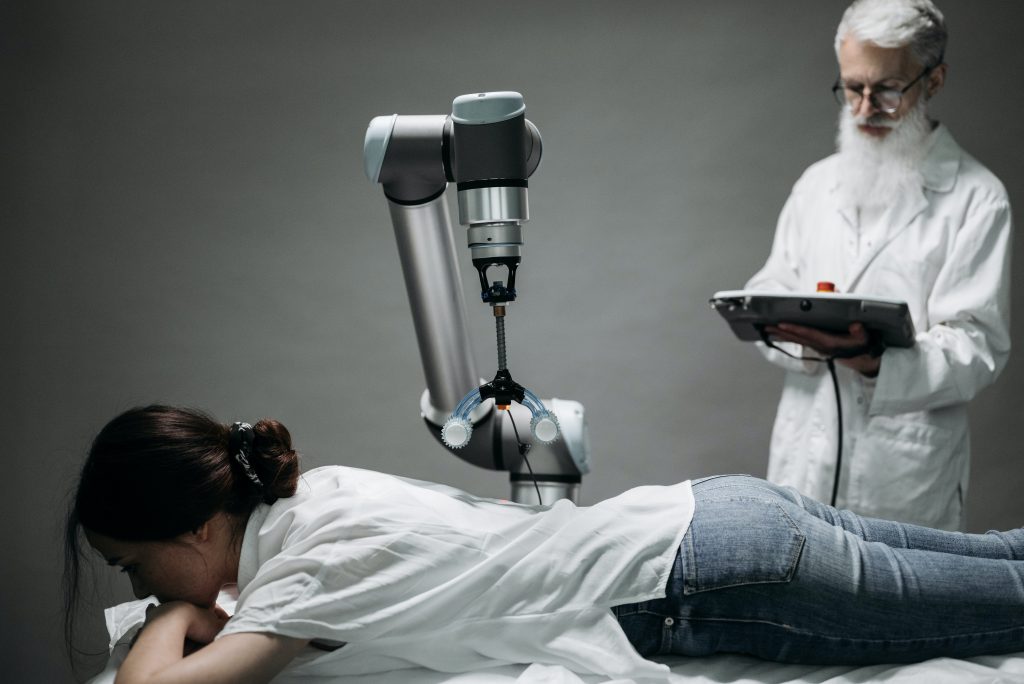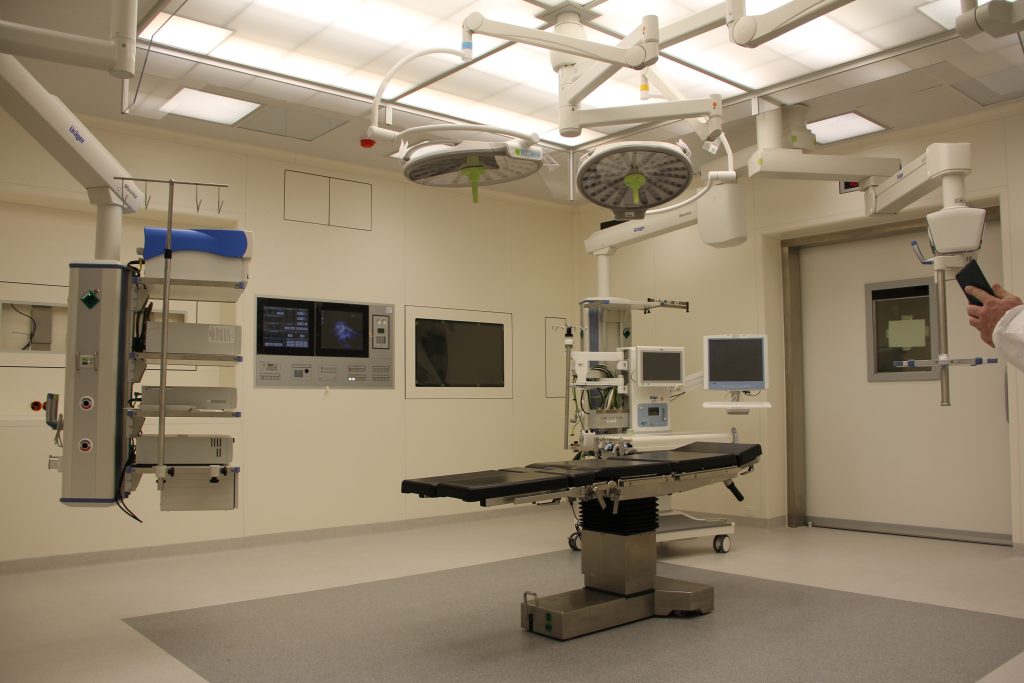Accomplished Surgeons Doing Robotic Surgery Recorded a 5X Growth in India

As the Indian healthcare sector increasingly adopts robotic surgery, Dr. Mahendra Bhandari, the CEO of the US-based Vattikuti Foundation and a prominent advocate for robotic surgery, highlights the growing presence of various surgical robots from multiple vendors. He underscores the rising number of trained doctors and the commitment of both government and corporate hospitals to invest in surgical robots across the country.
The Vattikuti Foundation, founded by Indian American entrepreneur and philanthropist Raj Vattikuti, serves communities in Michigan, USA, and India. It initiated the Vattikuti Urology Institute at Henry Ford Health in Detroit, Michigan, in 1997 and has since evolved into an international organisation promoting excellence in robotic surgery through various avenues.
In an exclusive interview Dr. Jayati Dubey, DHN, speaks to Dr. Bhandari on the expanding scope of robotic surgery in India.
Q. Dr. Bhandari, could you provide an overview of the current state of robotic surgery in India and how it has evolved over the past decade?
The past decade has seen rapid growth in robotic surgery, with over 100 functional surgical robots from low double digits and the number of accomplished surgeons doing robotic surgery recording a five-fold increase to over 500.
Beyond numbers, this demonstrates wider acceptance of robotic surgery among hospital administrators, surgeons and patients based on positive outcomes.
Q. You mentioned that robotic surgery involves a specially trained surgeon controlling robotic arms during procedures. Can you elaborate on how this technology has improved the precision and effectiveness of surgeries in various medical specialities?
The big difference is results from a tiny camera on a robotic to capture 3-dimensional images with manifold magnification that enables a surgeon to achieve precision, using other arms that are inserted in the body through tiny holes by guiding to cut, dissect, grasp and sew often exceeding what a surgeon's wrist and fingers can do.
Fine dissection leads to the removal of only the affected body tissue, causing less trauma. By allowing access to never-before areas, this technology expedites patient recovery and improves surgery outcomes because of smaller incisions and low blood loss.

Q. The introduction of joint replacement robots, such as Mako, has been a significant development. Can you discuss the adoption of these robots in India and the benefits they offer for orthopaedic procedures?
The robot-assisted joint replacement surgery works on the same principle as a robot-assisted surgery involving soft tissues'”remove only the affected, damaged part with a precision that is hard to match in the conventional system. The joint replacement robots are guided by the pre-scanned images to achieve precision.
Q. Globally, the surgical robot market is projected to reach $30.7 billion by 2030. What factors are driving the growth of robotic surgery, and how has the COVID-19 pandemic affected its progress?
A focus on checking the spread of COVID-19 and treating affected patients demanded hospitals curtail planned surgeries for many quarters. It offered surgeons an opportunity to learn. Vattikuti Foundation's vast digital library that houses robotic surgery videos from surgeons across the world drew many more followers to learn and adopt newer procedures. Dozens of webinars with experts from around the world organised by the Foundation allowed the exchange and adoption of newer methods once the routine surgeries resumed. The availability of more trained and confident surgeons led to the growth of robot-assisted procedures once the pandemic abated.
Q. You mentioned the Vattikuti Foundation's role in promoting robotic surgery in India. Could you elaborate on the foundation's mission and its efforts in training surgeons and supporting robotic technology?
Just to take you back 25 years, the Vattikuti Foundation was set up in 1997 by Indian American entrepreneur and philanthropist Raj Vattikuti and his wife Padma Vattikuti, with the single overarching mission of encouraging and supporting the use of robotic surgery. This mission we continue to pursue with a strong belief that "Humans At The Cutting Edge Of Surgery" reign supreme and technology without the man behind the machine has no role.
Q. How is robotic surgery becoming more affordable in India with the availability of robots from multiple manufacturers, and what impact will this have on patient accessibility?

With the availability of surgical robots at many AIIMS, government hospitals and institutes dedicated to Cancer treatment, the public has more affordable options. The cases presented by surgeons from these establishments at the KS International Global Awards by Vattikuti Foundation in the last few years speak of the growing volume and quality of procedures performed.
If you ask me if that's enough, I will say India has to take a huge leap to match income levels. I am confident that it has the potential to grow like never before to gain economies of scale to drive down prices even further.
The Indian healthcare system has an ideal mix of exceptional levels of surgical expertise coupled with high volumes of complex cases. Moreover, Indian patients have an appetite for cutting-edge technology.
Q. Can you discuss the role of state governments, like Telangana, in promoting robotic technology and creating policies to support its adoption in healthcare?
The recent announcement is about the state preparing a Robotic Policy that will also include robotic surgery. More forward-looking states must accept technology change as it is inevitable. A few states in the North and North East are actively allocating funds for robotic surgery, and the leaders are pushing for speedy implementation.
Q. What are the key advantages of robotic surgery that have led major health insurers to reimburse additional expenses? How is this benefiting patients and healthcare facilities?
Three very clear advantages of robotic surgery procedures -- quicker healing, short hospital stays leading to lower hospital-induced infection '“ makes reimbursement of robotic surgery procedures financially appealing to the health insurers. Complex surgeries can be safely performed in sick patients who otherwise would be unfit for an open surgery.
Quick recovery leading to shorter hospital stays benefits hospitals as they can cater to more patients with the same bed strength and for patients it means shorter wait times for surgeries, especially in the government establishments.
Q. Looking ahead, what do you foresee as the future trends and challenges in robotic surgery in India, and how do you anticipate it will continue to evolve and expand in various medical specialties?
I am hopeful of a bright future for robotic assisted surgeries in India as the technology increases its footprint across the length and breadth of the country. What adds to my optimism is the enthusiasm of young surgeons to adopt this technology and their increasing commitment to deliver better patient outcomes. I see more cardiac surgeons use robot assisted surgery for heart conditions like the Coronary Artery Bypass Grafting just to cite one example.
At an interaction with a group of 42 young Robotic Surgery Fellowship awardees at the Vattikuti network of 12 hospitals as part of Vattikuti Foundation's fully paid programme under internationally recognised surgeon mentors I saw their zeal to make an impact through their expertise. Many mentioned that their fellowship taught them a critical trait of how to engage with the patients and caregivers with empathy while describing the nature of disease, likely complications to arrive at informed decisions. This is what I believe will make them complete humans at the cutting edge of surgery.
Stay tuned for more such updates on Digital Health News
































